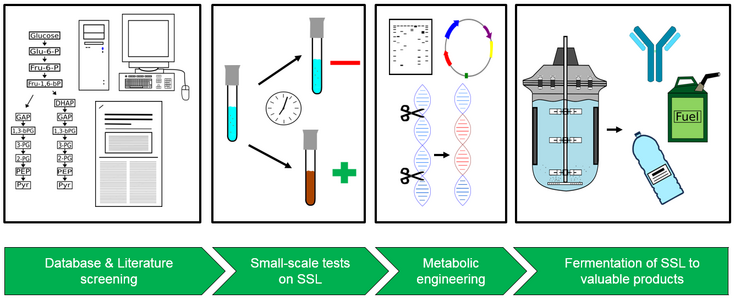Microbial Upgrading of a carbon-rich by-product in cellulose fiber production
SUPERVISOR: Michael SAUER
PROJECT ASSIGNED TO: Robin HOHENEDER
On our way to a zero-waste-economy, valorisation of side-streams from industrial processes becomes increasingly important. Biotechnological approaches are among the key-technologies for conversion of low value compounds derived from renewable resources. Naturally occurring or metabolically engineered organisms are used to produce valuable products like enzymes, chemicals or biofuels. The aim of this study is to valorise the spent sulfite liquor (SSL), a carbon rich side stream of the sulfite process for the production of pulp, the base of paper and textiles. Therefore, we would like to use SSL as a carbon/energy source for microorganisms and implement an industrial process.
The starting point is the literature and database screening of microorganisms, capable to use most organic compounds available in the SSL as carbon source. After several small-scale tests, the most promising candidates will be metabolically engineered to convert all present substrates. This includes the addition of new DNA-constructs, overexpressing of available genes as well as gene knockouts to repress unwanted side reactions. Moreover, pathways which lead to a valuable product should be introduced in a further step. This metabolically optimized organism will then be grown on SSL to obtain the perfect fermentation conditions. Hence, the impact of fermentation parameters (pH, Temperature, DO, stirrer speed), fermentation media, operational technique (batch, fed-batch, continuous mode) as well as the process duration should be analysed. Finally, this should lead to a cell factory with high substrate conversion, low waste, good downstream properties, as well as high amounts of valuable product.

This project is carried out in the framework of the COMET K1 Centre Wood Kplus.
